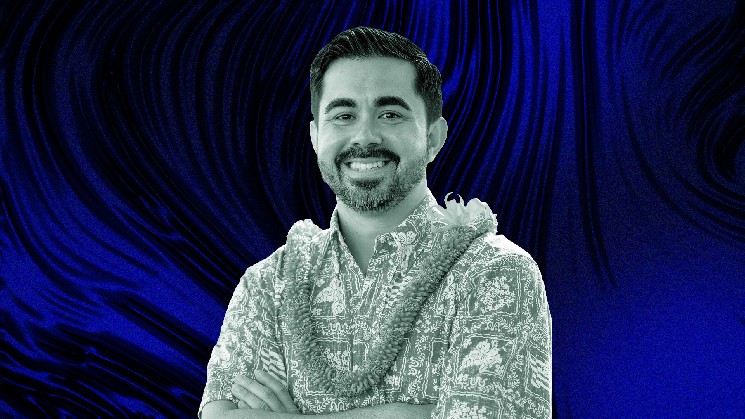Hawaii House candidate gets a boost from a pair of crypto super PACs

A crypto-friendly Democrat is on the ballot in Hawaii this weekend, and a pair of super PACs linked to the industry are spending cash to help him get elected.
Crypto PACs have spent well over a quarter of a million dollars to boost Hawaii Democrat Patrick Pihana Branco in the state’s congressional primary. Branco is one of six candidates running. Voters in Hawaii head to the polls on Saturday.
PACs linked to the crypto industry are not the only outside groups spending in the congressional race, and the contest won’t hinge on crypto policy. But political spending by Web3 Forward PAC and DAO for America PAC signals that the crypto industry sees Branco as a potential ally in Congress — and could perhaps help him overcome a double-digit gap in the polls.
Branco is a 35-year-old state lawmaker who previously served in the US Foreign Service as a commissioned diplomat. He was introduced to cryptocurrency when he was living in Colombia in 2019.
“I got added to a WhatsApp group one day of diplomats that was called Diplo Crypto. And they’re basically a group of diplomats that invest in crypto,” Branco said. “They text and talk about it all day.”
Branco was elected to the Hawaii state legislature in 2020, where he introduced legislation aimed at making Hawaii a more crypto-friendly state. He owns bitcoin and ether but did not say how much those assets are worth.
If elected to Congress, Branco said he would support legislation put forward by California Rep. Ro Khanna, a progressive who represents Silicon Valley. The bill, called the Digital Commodity Exchange Act (DCA), would create a new «regulatory framework for digital commodity developers, dealers and exchanges,» by filling regulatory gaps between the Commodity Futures Trading Commission and the Securities and Exchange Commission, according to a bill summary.
“What Ro Khanna is proposing, I think that’s kind of the gold standard,” Branco said. “The DCA would establish effective oversight over the digital commodity markets.”
Branco faces an uphill climb in his primary, however. Former state Sen. Jill Tokuda is the frontrunner, according to a Honolulu Civil Beat/Hawaii News Now poll conducted at the end of June. Tokuda had 31% of support from Democratic primary voters, while only 6% supported Branco. Nearly two-thirds — 63 percent — said they had not decided who to vote for. Tokuda’s campaign did not respond to a request for comment.
Web3 Forward PAC, which supports crypto candidates, reported spending more than $257,000 to support Branco, according to a recent Federal Election Commission report. Web3 Forward is funded primarily by GMI PAC, another super PAC founded by crypto industry leaders.
GMI PAC has received donations from executives at Coinbase, FTX, Multicoin Capital, Messari and Andreessen Horowitz, among others. Web3 Forward and GMI PAC did not respond to a request for comment.
Branco has also received a smaller boost from DAO for America PAC, which reported spending $37,000 on direct mail to voters in Branco’s race. The group reported two donors in the second quarter of the year. A donor named Charles Lee used Gemini Exchange to donate $87,228 worth of bitcoin to the PAC. The Miami-based Shrike Holdings gave $732,000. A third donor, Milton Chang, gave $20,000 to the PAC in April.
Outside groups not linked to crypto are also spending heavily to influence the primary. Super PACs and other committees, including the crypto groups, have spent nearly $598,000 to boost Branco. Meanwhile, outside groups have spent $603,000 attacking Tokuda and $199,000 in support of her, according to OpenSecrets, a nonprofit that tracks political spending.
The influence of outside spending has even become an issue in the primary. Branco recently came under fire from Tokuda’s campaign, which has alleged that his campaign has engaged in so-called red-boxing, a practice where campaigns skirt Federal Election Commission rules to signal messaging suggestions to super PACs.
“Don’t let anyone think Hawaii’s 2nd Congressional District is up for sale,” Hawaii’s Democratic Sen. Mazie Hirono wrote on Twitter earlier this month, urging voters to cast ballots for Tokuda.
Branco dismissed such allegations.“I cannot and will not and do not coordinate with any outside group that has come in,” he said.






 Bitcoin
Bitcoin  Ethereum
Ethereum  Tether
Tether  USDC
USDC  TRON
TRON  Dogecoin
Dogecoin  Cardano
Cardano  Bitcoin Cash
Bitcoin Cash  Chainlink
Chainlink  Zcash
Zcash  LEO Token
LEO Token  Monero
Monero  Stellar
Stellar  Litecoin
Litecoin  Hedera
Hedera  Dai
Dai  Cronos
Cronos  Tether Gold
Tether Gold  OKB
OKB  Ethereum Classic
Ethereum Classic  KuCoin
KuCoin  Gate
Gate  Algorand
Algorand  Cosmos Hub
Cosmos Hub  VeChain
VeChain  Dash
Dash  Tezos
Tezos  TrueUSD
TrueUSD  Stacks
Stacks  IOTA
IOTA  Decred
Decred  Basic Attention
Basic Attention  Theta Network
Theta Network  NEO
NEO  Synthetix
Synthetix  0x Protocol
0x Protocol  Qtum
Qtum  Ravencoin
Ravencoin  DigiByte
DigiByte  Zilliqa
Zilliqa  Nano
Nano  Holo
Holo  Siacoin
Siacoin  Numeraire
Numeraire  Waves
Waves  Ontology
Ontology  Status
Status  BUSD
BUSD  Enjin Coin
Enjin Coin  Hive
Hive  Pax Dollar
Pax Dollar  Lisk
Lisk  Steem
Steem  Huobi
Huobi  OMG Network
OMG Network  NEM
NEM  Bitcoin Gold
Bitcoin Gold  Augur
Augur  Ren
Ren